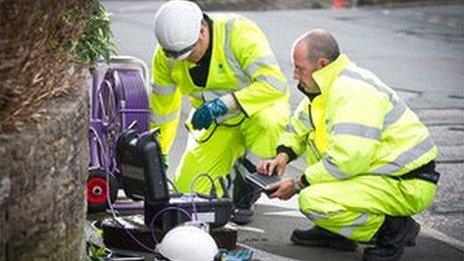Sex toys, fish and knickers flushed away down Welsh drains
- Published
Joseph Scarpato said wet wipes could flood entire streets and even break pumping stations
Sex toys, fish, a 5ft cuddly toy, knickers and 17 jars of beetroot are some of the strange items found in sewers in Wales.
Welsh Water is dealing with about 2,000 calls every month to remove items like wet wipes from drains.
It now says the problem is so bad it should be taught in schools, so children can influence their parents.
Joseph Scarpato, who clears the drains, said toilets were being used as "bins".
At Cardiff Treatment Works, where the sewerage is separated, all the un-flushable items get collected into a skip - with the company removing seven tonnes worth of rubbish from that site alone every week.
Crews have spoken of finding leather coats, sex toys, knickers, fish and tennis balls stuffed in pipes or flushed down toilets.
One manhole was being used to store stolen goods, with shelves put in to hold the items, while a dead horse and car parts have been found in sewers.
But the biggest challenge they face is cleaning the drains of wet wipes and sanitary products flushed down toilets as well as fatbergs blocking sewers, with the clear-up costing about £7m every year.
While the number of blockages has decreased in the last four years, from 26,771 in 2015/16 to 22,258 in 2017/18, the company said the rising use of wet wipes meant the blockages remains a significant problem.
The company says that it is not always the customers' fault, as some toilet wipes and wet wipes are labelled by manufacturers as flushable - despite them not being biodegradable.

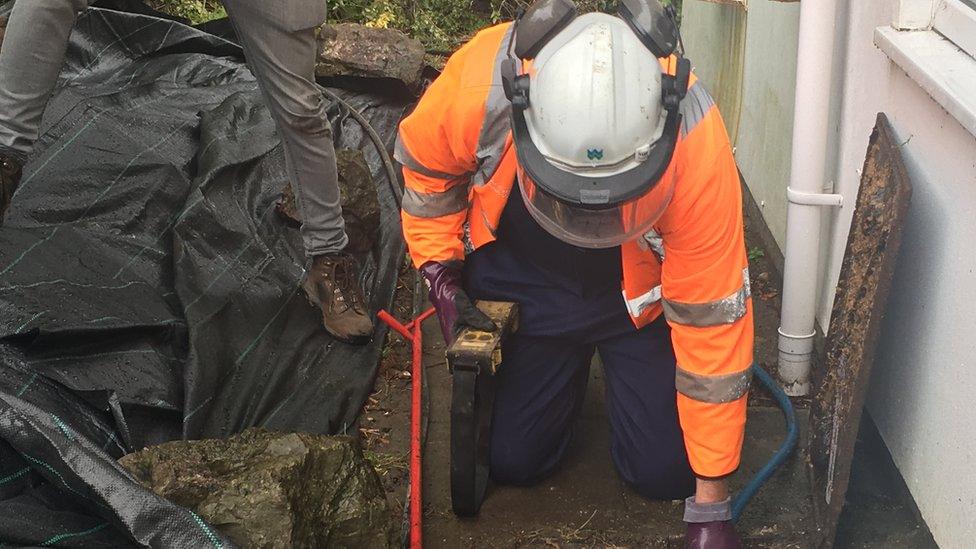
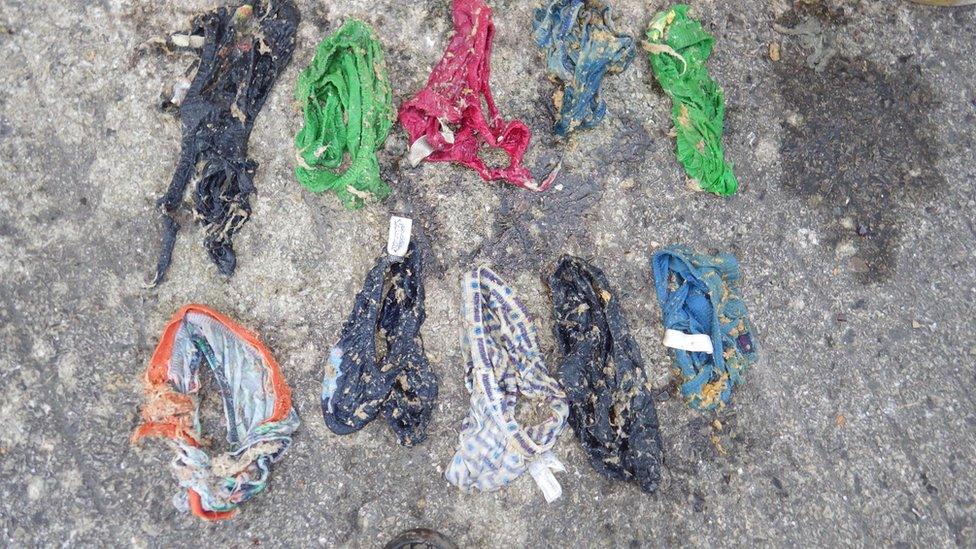
These knickers were found blocking the drains in Abertillery, Blaenau Gwent
'I've seen a door mat stuffed in a pipe'
Joseph Scarpato spends his days looking down people's drains - and fishing out things which would make even the most iron-clad stomach churn.
After working for Welsh Water for four years there is not a lot he has not seen and not much that surprises him.
"I've seen a door mat in a pipe line, that was a bit weird, it wasn't even in the sewer it was in the pipe work - I have no idea how that got there," said Mr Scarpato.
He said the worst thing he had seen was when a rat died, swelled up and blocked a whole street in Blaenavon, Torfaen - when he pulled it out it was jet black and covered in fat.
BBC Wales went along with Mr Scarpato as he responded to a call from a man in Bargoed, Caerphilly, who had tried everything to unblock his toilet, but with no luck.
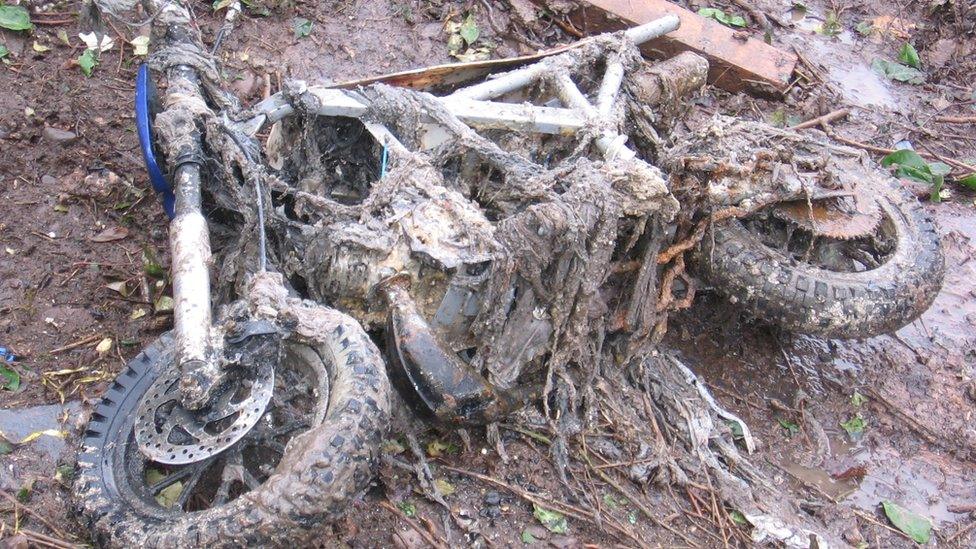
This bike was one of the strangest things Welsh Water found down a sewer
When he opened the drain covers, Mr Scarpato soon found what the problem was - wet wipes which had formed a ball blocking the drains.
He said if left to build up they could "flood toilets, houses, streets" and even "break pumping stations".
He said the issue could start at one house and end up blocking a whole street, with someone flushing wet wipes at the top of a hill flooding a house at the bottom.
"I've been on a job that's taken six hours because the whole street was blocked, and I've gone up and down the street all night," he said.
"You'll clear one section and then another load of sewerage will come down with loads of wet wipes - you can chase it all the way down the street sometimes."
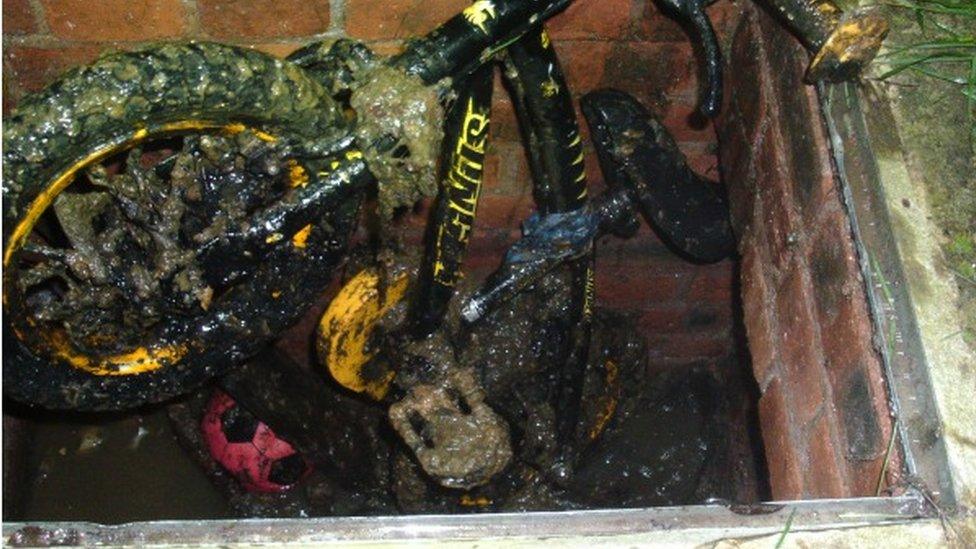
Not really where you should store your bike!
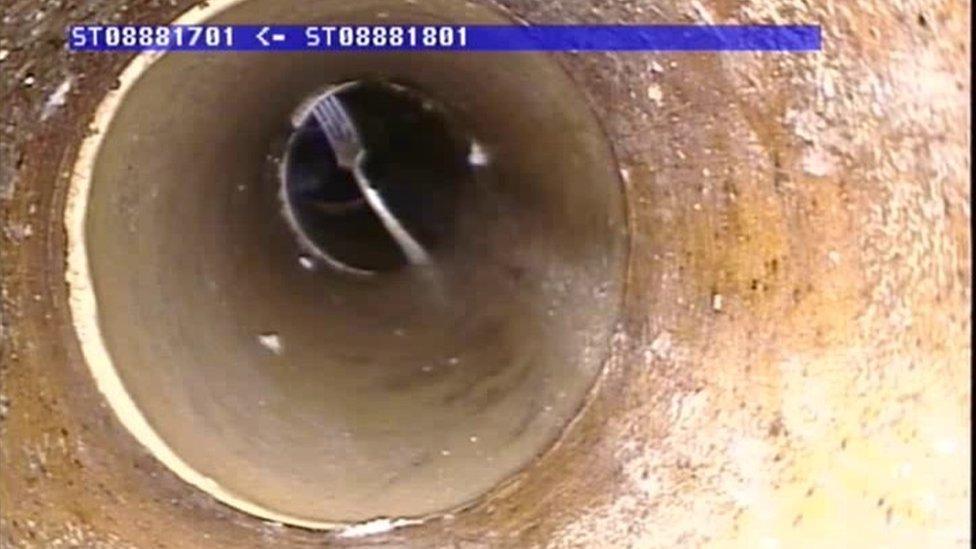
A fork was one of the stranger items found stuck during one of the blockage clean-ups

Welsh Water, which is not-for-profit company, is responsible for managing more than 16,800 miles (27,000km) of sewer network, with staff spending about 28,000 hours a year removing blockages.
This includes 1.3m cotton buds flushed down toilets. It is an offence to flush anything which could cause a blockage.
Emma Harris, pollution reduction strategy manager, said: "People put strange things down the sewers, whether its toys or dead tropical fish, but also a lot of wet wipes and also sanitary products,
"I think it is part of educating our customers to make sure they understand, they don't necessarily make that connection between what we flush down the toilet and the impact it could have on the environment."
She said the education should start in schools to change habits early - and while officers do go into schools, it should be part of the new national curriculum.
"If you look at the success we have had with recycling in this county, and a think a lot of that has come from how we have educated our children into doing the right thin, so if the children take the messages home that's very important."
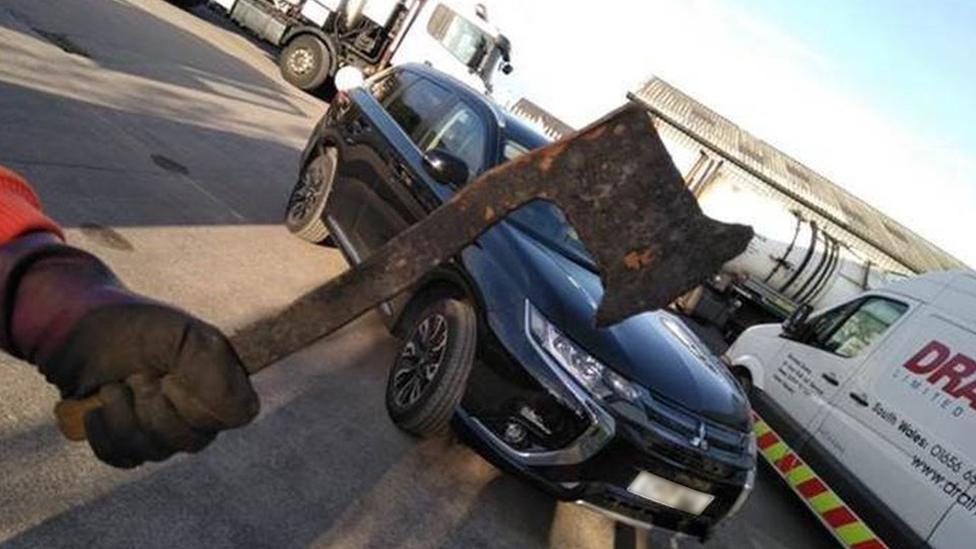
This axe was one of the stranger things to be found down the sewers
- Published9 June 2018
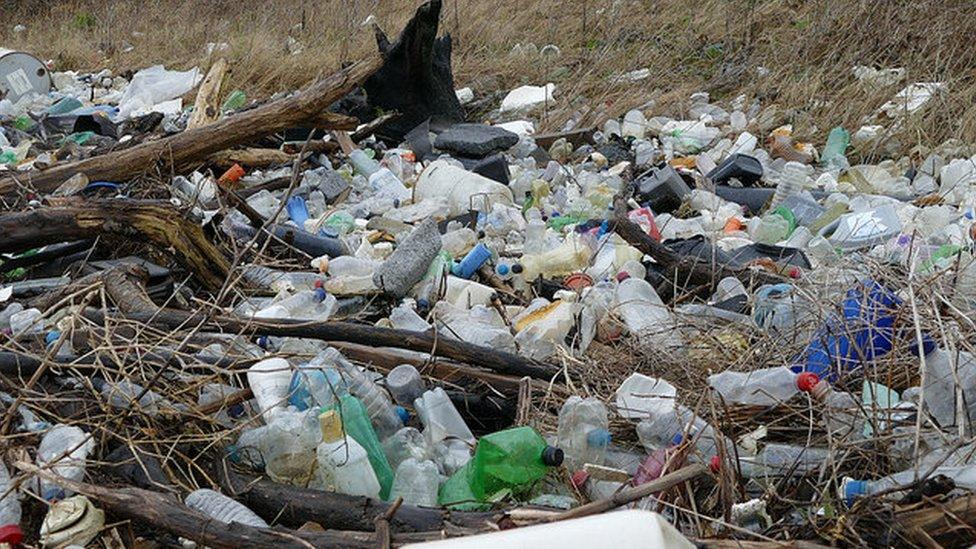
- Published21 September 2016

- Published5 October 2016
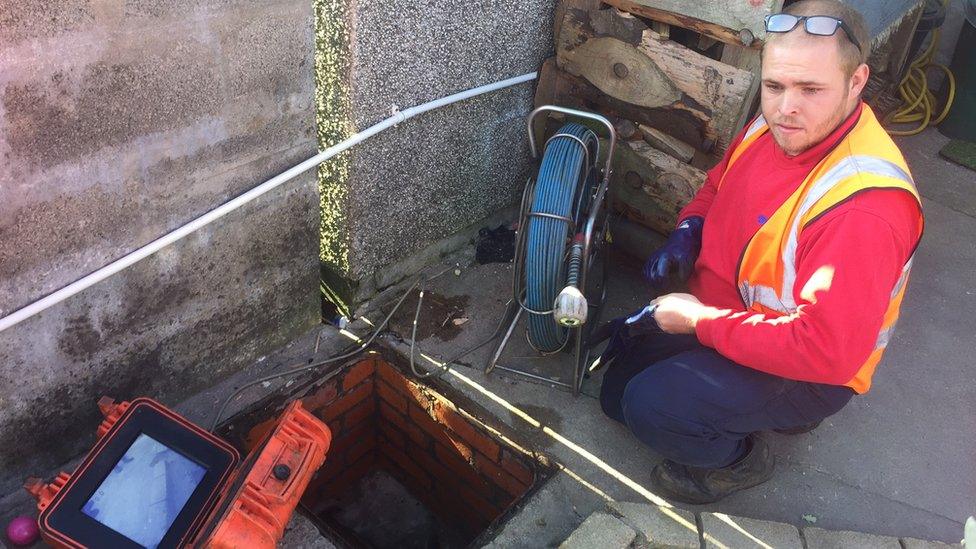
- Published8 July 2015
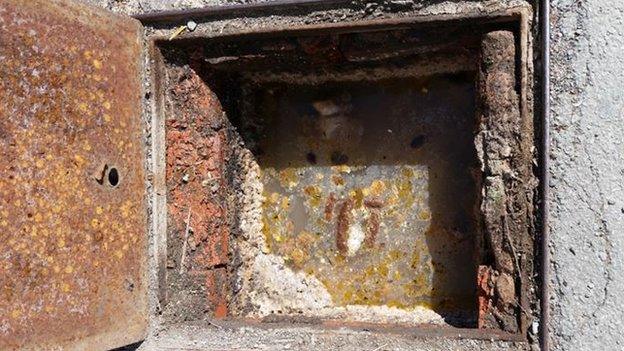
- Published14 October 2014
